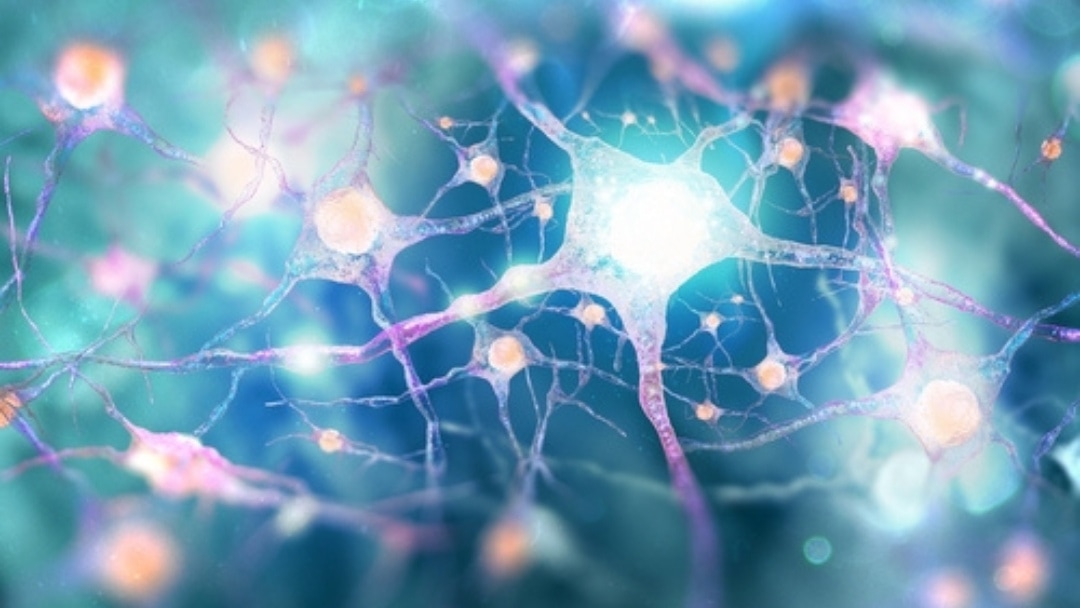Many children today experience food sensitivities and intolerances that are known to have adverse effects on their mood and behaviors. Unfortunately, when parents see unwanted behaviors, depression or mood swings in their children, their pediatrician may want to prescribe medication instead of examining the child’s diet and looking for the triggers that are creating food sensitivities and intolerances. Common symptoms of food sensitivities and intolerances are:
- Frequent upper respiratory infections such as sinus, throat, ear or chest infections
- Fatigue
- Joint pain
- Muscle pain
- Learning disabilities
- Focus, concentration and cognition problems
- Psoriasis
- Eczema
- Skin irritations
- Skin rashes
- Bedwetting
- Unexplained weight gain or loss
- Elevated anxiety
- Moods swings
- Meltdowns
- Hyperactivity
- Non-compliant behaviors
- Aggression
- Sleep problems
- Chronic constipation
- Chronic diarrhea
It’s best to address root causes and identify food sensitivities and intolerances with an elimination diet and remove them from your child’s diet to stop the inflammatory process that develops. Frequent antibiotics and NSAID usage (Motrin, Advil, and Tylenol etc) tend to worsen food sensitivities and intolerances due to increased Candida and yeast overgrowth.
What Are Food Sensitivities?
Very often, food sensitivities in children can go undiagnosed or misdiagnosed because of the delayed reactions which can manifest in different ways in the body and may be difficult to detect. In addition, food sensitivities are also characterized by an inflammatory response but are not antibody induced.
What is extremely important with food sensitivities is the integrity of the gut lining. For instance when the gastrointestinal system has a permeated gut lining called Leaky Gut Syndrome, then food and/or toxic pathogens particles, to which a child may be sensitive, may pass through the lining of the gut and end up in the blood stream. This process triggers a reaction and can cause chronic systemic inflammation (IgG reaction). The results of chronic systemic inflammation can be:
What Are Food Intolerances?
The symptoms of food intolerances are usually less serious then food sensitivities and are generally limited to digestive problems. How do you know when your child is experiencing food intolerances? Many children develop digestive issues such as:
Another way to detect a possible food intolerance is to recognize that your child eats one particular food continually or a select number of foods constantly and has behavioral issues if the food is taken away or not given.
Food intolerances are associated with food cravings.
If your child’s digestive system does not break down specific foods very well, their fight or flight stress hormones are released, and glucose (sugar) elevates to make sure the body has enough energy. An increase in blood sugar levels (hyperglycemia) can increase the neurotransmitter dopamine which triggers addictive behaviors and cravings.
Some common foods may cause children to become picky eaters and prone to craving foods to which their bodies are intolerant:
- Refined sugar
- White flour
- Refined carbohydrates
- Dairy (milk)
- Wheat
- Eggs
- Soy
- Gluten
- Yeast-containing foods
- Food dyes
- Aspartame
- Glutamates such as MSG
- Nuts
- Peanuts
- Garlic
- Shellfish
- Corn
Children with neurodevelopmental disorders develop picky eating due to the chronic inflammatory response from the gastrointestinal system (Leaky Gut Syndrome) which exacerbates their symptoms and creates a vicious cycle unless the food intolerances are removed. These children are very sensitive to foods and develop food intolerances very easily, so what’s the next step?
What to Do When Food Sensitivities and Intolerances Are Suspected
- Have your child tested with an IgG ELISA food allergy test
- Begin an elimination diet of the culprit foods listed above for a two-week period and reintroduce one by one to see what subsequent reaction your child undergoes.
- Remove gluten and casein food products
- Only choose antibiotics when absolutely necessary
- Look into herbal and supplemental alternatives to antibiotics
- Heal the microbiome and the digestive tract
- Give your child prebiotics and probiotics
- Feed your child fermented foods
- Do NAET allergy elimination treatment, BioSet, Field Control Therapy or NeuroModulation Therapy to eliminate food sensitivities and intolerances
- Give your child antioxidants to help reduce inflammation caused by food sensitivities and intolerances
- Incorporate omega 3s and omega 6s in your child’s diet and supplements to reduce the inflammatory response
Testing Laboratories
The following is a list of IgE, IgG and IgA testing laboratories:
- LRA Lymphocyte Response Assay by ELISA/ACT Biotechnologies. LRA is delayed hypersensitivity testing looking directly at lymphocytes to detect delayed food and chemical hypersensitivities up to 504 items.
- Food and Chemical Sensitivity Testing by ALCAT. Alcat tests over 450 substances to determine which food and other substances trigger chronic inflammation.
- Allergy and Immunology Overview by ALLETESS Medical Laboratory. Testing environmental allergens, food allergies, yeast and mold allergies and gut immunity.
- IgG Food Allergy Test and Candida by Great Plains Laboratory. 93 foods are tested with Candida. Candida increases and produces toxins that create holes in the intestinal lining leading to Leaky Gut Syndrome. Once in the blood it causes an inflammatory immune system response.
- Bloodprint Test (IgG) Airborne and Food Allergy Test (IgE) by Immunolabs. Bloodprint delayed food reactivity test also comes with a nutritional program. The Airborne and Food Allergy Test is the immediate reactivity test for IgE.
- The Bloodspot IgG4 Food Antibody Profile by Genova Diagnostics measures levels of IgG4 antibodies specific to 30 commonly offending foods clearly identifying foods causing patient reactions.
- Multiple Test Arrays and Food Reactivity Screens by Cyrex Labs. Cyrex offers a large variety of different tests pertaining to food and chemical sensitivities.
- A – 95 Food Panel by Meridian Valley Laboratory. This basic food allergy test panel which is a combined IgG4 and IgE by ELISA Method consists of 95 commonly eaten foods and includes a free Candida screening.
Food Sensitivities and Intolerances Healing Checklist
Still Looking for Answers?
Visit the Epidemic Answers Practitioner Directory to find a practitioner near you.
Join us inside our online membership community for parents, Healing Together, where you’ll find even more healing resources, expert guidance, and a community to support you every step of your child’s healing journey.
Sources & References
Adams, J.B., et al. Comprehensive Nutritional and Dietary Intervention for Autism Spectrum Disorder—A Randomized, Controlled 12-Month Trial. Nutrients. 2018, 10, 369.
Aucoin, M., et al. Major Depressive Disorder and Food Hypersensitivity: A Case Report. Neuropsychobiology. 2019 Oct 10:1-7.
Chistol, L.T., et al. Sensory Sensitivity and Food Selectivity in Children with Autism Spectrum Disorder. J. Autism Dev. Disord. 2018;48:583–591.
De Magistris. L., et al. Antibodies against Food Antigens in Patients with Autistic Spectrum Disorders. BioMed Res. Int. 2013;2013:729349.
Ghalichi, F., et al. Effect of Gluten Free Diet on Gastrointestinal and Behavioral Indices for Children with Autism Spectrum Disorders: A Randomized Clinical Trial. World J. Pediatr. 2016;12:436–442.
Hsu, C.-L., et al. The Effects of a Gluten and Casein-Free Diet in Children with Autism: A Case Report. Chang Gung Med. J. 2009;32:459–465.
Jyonouchi, H., et al. Evaluation of an Association between Gastrointestinal Symptoms and Cytokine Production against Common Dietary Proteins in Children with Autism Spectrum Disorders. J. Pediatr. 2005;146:605–610.
Jyonouchi, H., et al. Impact of innate immunity in a subset of children with autism spectrum disorders: a case control study. Journal of Neuroinflammation. 2008 Nov 21;5:52.
Jyonouchi, H., et al. Innate Immunity Associated with Inflammatory Responses and Cytokine Production against Common Dietary Proteins in Patients with Autism Spectrum Disorder. Neuropsychobiology. 2002;46:76–84.
Karakula-Juchnowicz, H., et al. The Food-Specific Serum IgG Reactivity in Major Depressive Disorder Patients, Irritable Bowel Syndrome Patients and Healthy Controls. Nutrients. 2018 Apr 28;10(5). pii: E548.
Karakula-Juchnowicz, H., et al. The role of IgG hypersensitivity in the pathogenesis and therapy of depressive disorders. Nutr Neurosci. 2017 Feb;20(2):110-118.
Lucarelli, S., et al. Food Allergy and Infantile Autism. Panminerva Med. 1995;37:137–141.
Martin, V.T., et al. Diet and Headache: Part 1. Headache. 2016 Oct;56(9):1543-1552.
Pelsser, L.M., et al. Effects of a restricted elimination diet on the behaviour of children with attention-deficit hyperactivity disorder (INCA study): a randomised controlled trial. Lancet. 2011 Feb 5;377(9764):494-503.
Peters, R.L., et al. Infant food allergy phenotypes and association with lung function deficits and asthma at age 6 years: a population-based, prospective cohort study in Australia. Lancet Child Adolesc Health. 2023 Jul 24;S2352-4642(23)00133-5.
Philpott, H., et al. Allergy tests do not predict food triggers in adult patients with eosinophilic oesophagitis. A comprehensive prospective study using five modalities. Aliment Pharmacol Ther. 2016 Aug;44(3):223-33.
Shakoor, Z., et al. Prevalence of IgG-mediated food intolerance among patients with allergic symptoms. Ann Saudi Med. 2016 Nov-Dec;36(6):386-390.
Sloper, K.S., et al. Children with atopic eczema. II: Immunological findings associated with dietary manipulations. Q J Med. 1991 Aug;80(292):695-705.
Stockton, S., et al. The Impact of a Food Elimination Diet on Collegiate Athletes’ 300-meter Run Time and Concentration. Glob Adv Health Med. 2014 Nov;3(6):25-40.
Verena, L., et al. Elimination diets’ efficacy and mechanisms in attention deficit hyperactivity disorder and autism spectrum disorder. Eur Child Adolesc Psychiatry. 2017; 26(9): 1067–1079.
Virdee, K., et al. Food-specific IgG Antibody-guided Elimination Diets Followed by Resolution of Asthma Symptoms and Reduction in Pharmacological Interventions in Two Patients: A Case Report. Glob Adv Health Med. 2015 Jan;4(1):62-6.
Vita, A.A., et al. Associations between Food-Specific IgG Antibodies and Intestinal Permeability Biomarkers. Front. Nutr. 2022;9:962093.
Westmark, C.J. Soy Infant Formula and Seizures in Children with Autism: A Retrospective Study. PLoS ONE. 2014;9:e80488.
Xie, Y., et al. Effects of Diet Based on IgG Elimination Combined with Probiotics on Migraine Plus Irritable Bowel Syndrome. Pain Res Manag. 2019 Aug 21;2019:7890461.




